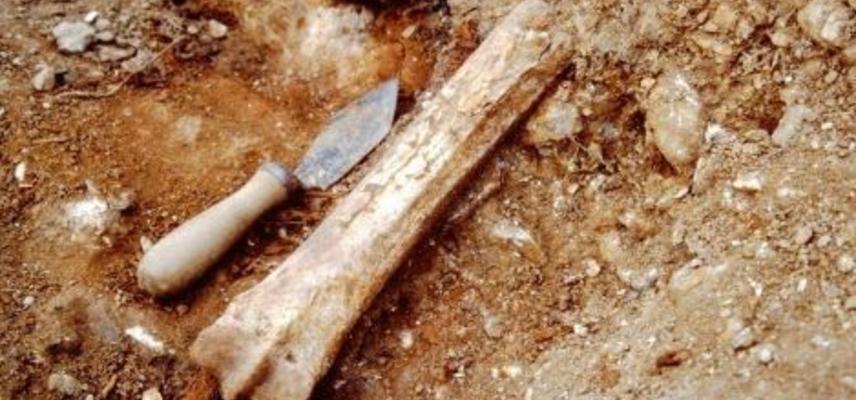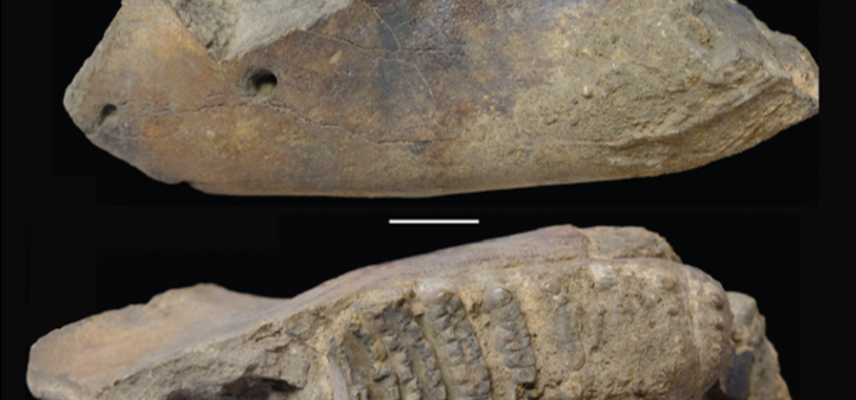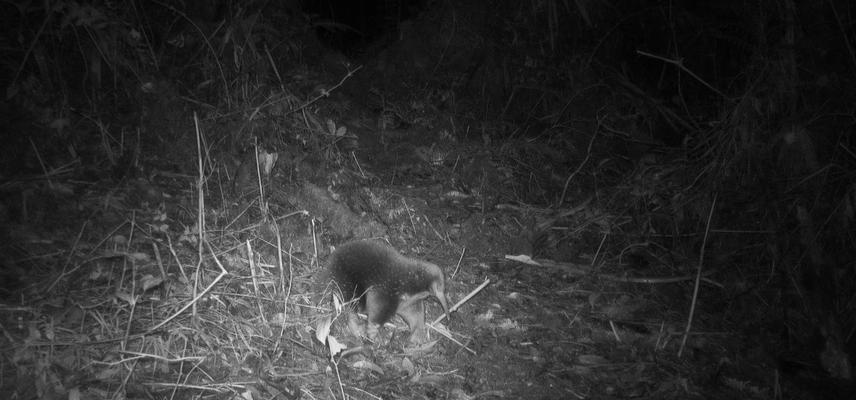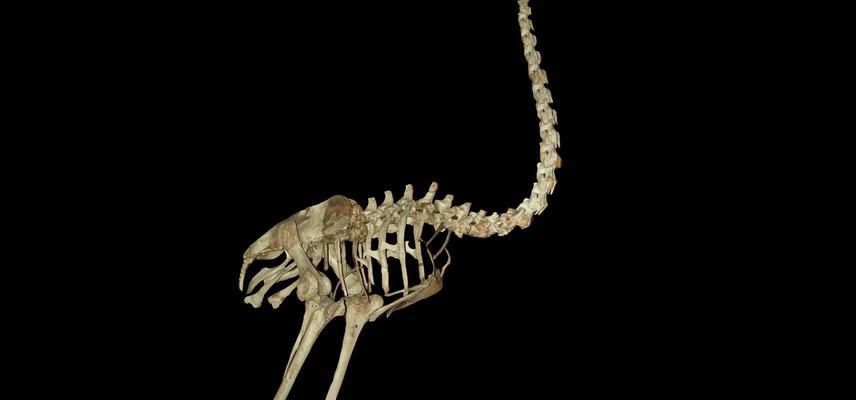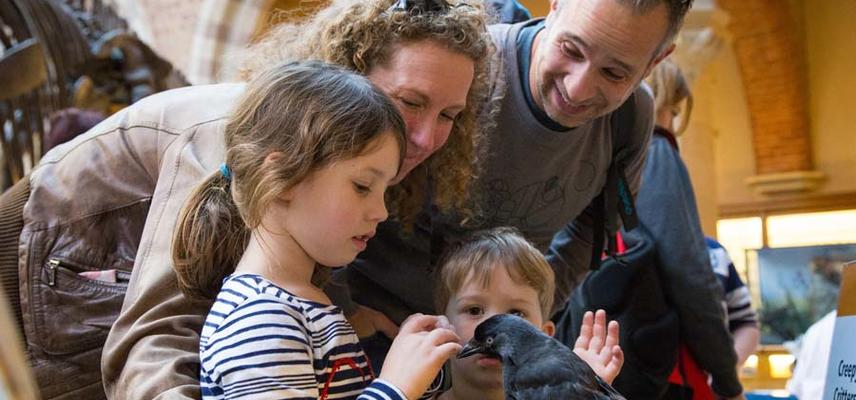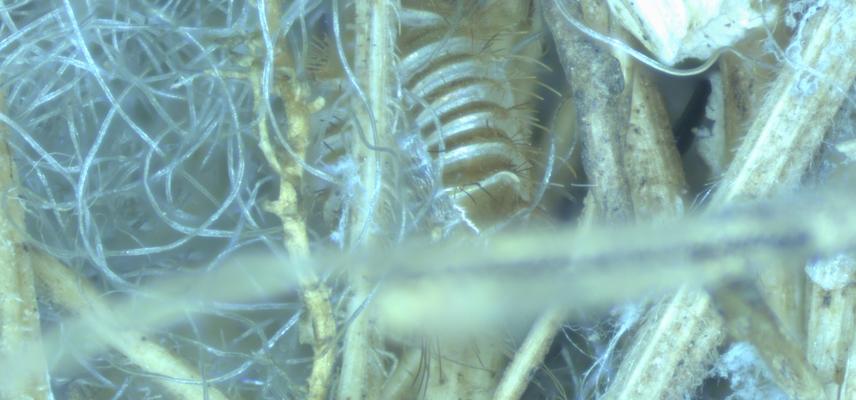Undergraduate Bursary Scheme 2024
APPLICATIONS FOR THE 2024 UNDERGRADUATE BURSARY SCHEME ARE NOW CLOSED
Oxford University Museum of Natural History has been a hub of world-leading research since its foundation in 1860. Home to extensive geological and zoological collections, and host to a lively programme of exhibitions and events, the Museum continues to inspire its 750,000 annual visitors and cultivate public interest in the natural sciences.
The Undergraduate Bursary Scheme is designed to give undergraduate students hands-on experience working in a museum of natural history. The scheme accepts applications from students from underrepresented backgrounds who are ordinarily resident in the UK.
These bursaries are kindly supported by the EPA Cephalosporin Fund and the Carey Family.
I had the opportunity to learn about the inner workings of a science museum: how specimens are stored and looked after, how research is carried out. I have also learned many digital skills which will help me pursue a career in research, and had my eyes opened to career paths I was previously unaware of. (Bursary Student, 2023)
The passion and dedication of everyone in the department was very special to be a part of. I truly felt like part of the team – especially being invited to events such as the summer party, it really made the experience special. (Bursary Student, 2023)
The Undergraduate Bursary Scheme provides students from underrepresented backgrounds with 5-6 weeks of hands-on work experience in a museum. Projects cover natural sciences research, museum collections management, and public engagement with science.
The bursaries offer a total stipend of £3000 to cover travel and living expenses. Students will have the option of staying in accommodation to be provided by the Museum at no additional charge. Projects will run at fixed dates between June and September 2024.
Documenting Mammalian Megafauna from the Upper Thames Pleistocene
Documenting Mammalian Megafauna from the Pleistocene Beds of Siwalik Hills, India
Unveiling the Mysterious Fauna of the Cyclops Mountains through Camera Trap Analysis
Bringing the Museum's Fossil Bird Collections into the Twenty-First Century
Connecting Families and Young People to Nature
Cataloguing exceptionally preserved marine fossils from Silurian Hertfordshire
Exploring a Diverse Collection of Birds Nests and the Arthropods that Inhabited them
To be eligible for the bursaries, applicants must meet the following criteria:
- be ordinarily resident in the UK (your UK residence should not have been wholly or mainly for the purpose of receiving full-time education, eg you moved to the UK for educational purposes at the start of your course); and
- be, at time of application, undertaking an undergraduate degree at a UK or Irish university; and
- be in at least the second year of your course; and
- not yet have undertaken a substantial period of research (e.g. integrated research masters); and
- meet at least one of the following criteria:
- be in the first generation of your family to go to university (i.e. none of your parents, stepparents, or guardians have higher education qualifications); or
- be care experienced (for a period of more than 3 months); or
- have been considered as statutorily homeless and qualified for assistance under your local authority's 'main homelessness duty'; or
- be a refugee, stateless person, or asylum seeker, or been otherwise forcibly displaced within or outside your country of origin; or
- be from a low-income background and in receipt of more than the minimum levels of support detailed from your regional funding body (see financial eligibility below to check if you meet this criterion); or
- received free school meals for at least one year between the ages of 11 and 18
The Museum is committed to increasing the participation of students from under-represented backgrounds. We would strongly encourage applications from students of Black, Bangladeshi, and Pakistani ethnicity, who are underrepresented across higher education.
Eligibility Definitions
Your country of ordinary residence is the country in which you are normally resident, out of choice and for a settled purpose, apart from temporary or occasional absences. It is not a country in which you are studying, working or living temporarily. You would usually have indefinite leave to enter or remain in the UK in order to be considered ordinarily resident. Those with a time limitation on how long you can stay in the UK (for example, a time-limited UK visa) would not usually be eligible for our programmes.
We define ‘care experienced’ as those students who under the age of 18 have ever lived in public care or as a looked-after child, including:
- living with foster carers under local authority care.
- living in a residential children's home.
- being 'looked after at home’ under a supervision order.
- living with friends or relatives in kinship care – either through a formal arrangement (eg a Special Guardianship order) or an informal arrangement without local authority support.
Your care experience should have been for more than 3 months.
We consider an estranged person to be someone under the age of 25 who has not communicated with their parents/ stepparents/ guardians due to a breakdown in their relationships and has had no physical and financial support from them for at least 12 months. Estranged persons may also have been assessed as independent by Student Finance during undergraduate study.
We include those who are now in the UK and have ever been a refugee, stateless person, or asylum seeker, or been otherwise forcibly displaced within or outside their country of origin. This could include those with discretionary leave to remain in the UK, and those granted other forms of humanitarian or human-rights related protection in the UK.
The information below is provided for applicants who would like to check whether or not they meet the financial eligibility criterion (..."be from a low-income background and in receipt of more than the minimum levels of support detailed from your regional funding body").
Applicants who received at least the following levels of support from their regional funding body during their degree meet the financial eligibility. The minimum qualifying support levels for the different regions are set out below:
England
Students who received at least the following levels of maintenance loan in the year 2023-23 are eligible:
- Studying outside London, not living with parents: £7,791
- Studying in London, not living with parents: £10,324
- Living at home: £6,314
Scotland
Students in receipt of the following are eligible:
- Young student bursary of at least £500
- Independent student loan of at least £6600 in 2022-23
Northern Ireland
Maintenance grant of at least £689
Wales
Minimum qualifying support levels for students who began their undergraduate course during or after the 2018-19 academic year:
- Studying outside London, not living with parents: Maintenance grant of at least £5,208
- Studying in London, not living with parents: Maintenance grant of at least £6,408
- Living at home: Maintenance grant of at least £4,488
Applications are now CLOSED
Following the application closing deadline, submitted applications will be assessed for eligibility. Eligible applications will be blindly assessed by the relevant project supervisor and a team of two other staff members. A shortlist of applicants will then be decided upon for each project.
Applicants will be shortlisted according to the following criteria:
- The strength of their application statement.
- Relevancy and strength of previous experience and achievements to the project selection criteria (academic, work experience, hobbies and interests). This will be assessed based on the candidate's CV and application statement.
- The strength of their academic reference.
All applicants will receive an email during the week commencing 11 March confirming whether or not they have been shortlisted.
Shortlisted applicants will then be invited for an interview. This interview will take place online. Interviews are expected to take place from 11 – 20 March 2024.
Successful applicants will then be decided on, taking into account interviews and written applications.
We are aiming to make our undergradute projects accessible to people with disabilities/disabled people, people with impairments, and people with access needs. If you would like to discuss accessibility, including adjustments that you are likely to need in your accommodation or workplace, please get in touch with Ella.
Email: ella.mckelvey@oum.ox.ac.uk
Any information provided will not influence the assessment of the strength of your application.
Over the six weeks I spent at the museum I built up a close working relationship with my supervisor which really elevated the whole experience. She went above and beyond to make sure I could get involved with various activities outside of my project, such as attending team meetings and workshops, or visiting off-site storage facilities to complete inventory checks etc. (Bursary Student, 2023)




